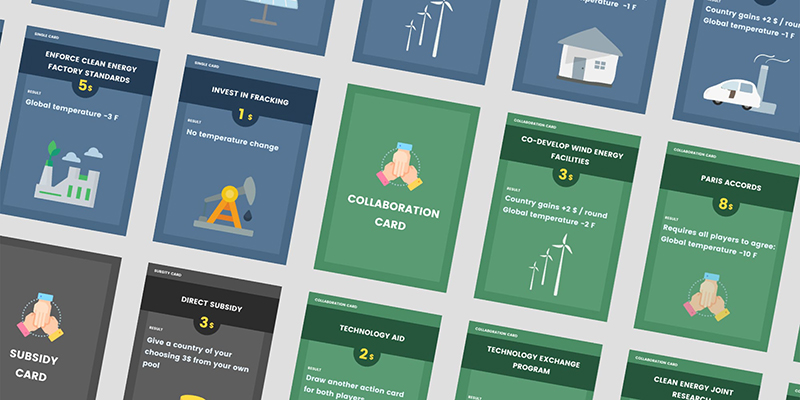Related People
Jessica Hammer, Lynn Kirabo
Games for Change: CMU Course Strategizes Around Sustainability


When it comes to climate change, a group of students at Carnegie Mellon University are ahead of the game — or, rather, designing it.
Transformational Game Design Studio, co-taught by Jessica Hammer and Lynn Kirabo in the Human-Computer Interaction Institute (HCII), invites students to create games that change a player's thoughts or behaviors.
"We work with real-world partners on real-world problems and use games to make a positive difference in the world," said Hammer, interim associate director of the HCII. "At the end of the day, our goal isn't to give out a grade. It's to turn out a class of capable designers who can take game design skills and infuse them into whatever type of work they do."
This fall, Hammer and Kirabo's class partnered with Mert Tosun, a visiting Fulbright Ph.D. researcher who is studying sustainability. Tosun challenged the students to design games, which can take any form, that would change minds about climate action.
The course is open to students across CMU. Hammer and Kirabo forge teams of multidisciplinary students to design a game addressing a different situation for each assignment. For Kirabo — a CMU alumna who received her master of science in information technology in 2015 and is a Ph.D. candidate in the HCII — its value lies in the way it helps students approach new problems. That was her experience taking the class as a student in 2018 and continues now as she co-teaches.
"In this class, students learn and practice multiple skills at the same time: how to distill a project brief into the core challenge that they are interested in tackling; how to create early and rough game interpretations of the problem; and how to give feedback in a constructive and actionable manner. These are skills we hope our students will take on as they start/continue in their careers," said Kirabo.
And though the class is housed in the School of Computer Science, the course requires no programming. In fact, no new materials of any kind were allowed in the creation of the games, a nod to the theme of sustainability.
"When you start letting people program to make their games, they get lost in making code function instead of making a game that addresses the intended problem. I want my students' focus not to be on programming the computer that has silicon circuits, but programming the computer that has carbon circuits," Hammer said.
Learn more about the games and meet some of the students who designed them in the story on CMU's central news site.
Research Areas

